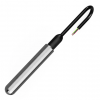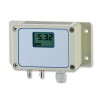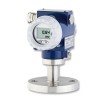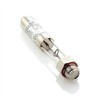PVC is a widely used plastic which is cheap to produce and hard enough to be used as a component parts construction material.
PVC in a plasticised form is a softer, more flexible material, and is used to manufacture coatings, fabrics and linings.
PVC is durable, weatherproof and is a good electrical insulator, hence its use as a outer coating for electrical signal cables on pressure sensors.
PVC can be used to manufacture the process connections and housings for pressure sensors which are designed to be used with acidic and alkali solutions, which would otherwise cause metal equivalents to corrode and fail.
PVC has good resistance to alcohols, ammonia, antifreeze, beer, fruit juices, freshwater, seawater, chlorinated water, detergents, diesel, fuel oils, gasoline, kerosene, hydraulic oil, hydrochloric acid and sulphuric acid.
Featured chemical resistant measurement products
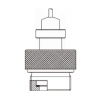 Viscous soap and detergent storage hydrostatic level measurement - Flush-mounted ceramic transducer for monitoring tank levels in viscous soap and 50% sodium hydroxide applications.
Viscous soap and detergent storage hydrostatic level measurement - Flush-mounted ceramic transducer for monitoring tank levels in viscous soap and 50% sodium hydroxide applications.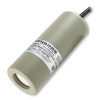 Hydrochloric acid storage tank 1mH2Og hydro-static pressure transmitter - A hydro-static pressure transmitter for storage tank level monitoring use to measure level of 36% hydrochloric acid over a range of 0 to 1 mH2O g by immersion in the tank, and sending the corresponding 4-20mA signal through the submersible electrical connection.
Hydrochloric acid storage tank 1mH2Og hydro-static pressure transmitter - A hydro-static pressure transmitter for storage tank level monitoring use to measure level of 36% hydrochloric acid over a range of 0 to 1 mH2O g by immersion in the tank, and sending the corresponding 4-20mA signal through the submersible electrical connection.
Glossary of Media Compatibility technical terms
- Al2O3
- Bonded Seal
- Dry Cell
- Dry/Dry
- EPDM – Ethylene Propylene Diene Monomer
- FEP – Fluorinated Ethylene Propylene
- FFKM – Perfluoroelastomer
- FKM – Fluoroelastomer
- Food Grade
- IP Ratings
- PUR, PU – Polyurethane
- Stainless Steel Pressure Sensors
- Wet/Dry
- Wet/Wet
- Wetted Parts

